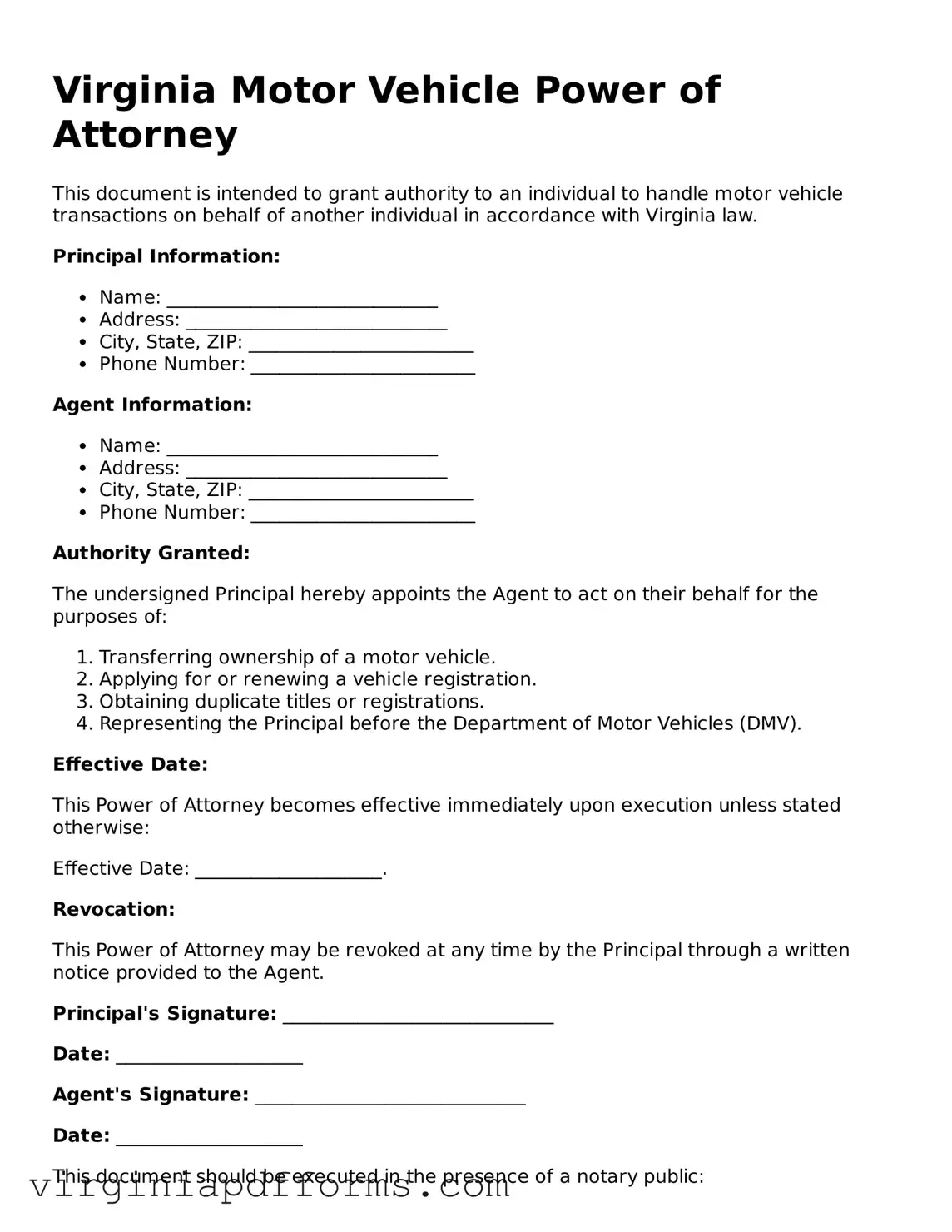Attorney-Approved Virginia Motor Vehicle Power of Attorney Document
The Virginia Motor Vehicle Power of Attorney form is a legal document that allows one person to grant another the authority to handle specific motor vehicle-related tasks on their behalf. This can include signing documents, transferring titles, or registering vehicles. Understanding this form is essential for anyone needing to delegate these responsibilities effectively.
Access My Document Now

Attorney-Approved Virginia Motor Vehicle Power of Attorney Document
Access My Document Now

Access My Document Now
or
Free Motor Vehicle Power of Attorney File
Need this form wrapped up fast?
Finish Motor Vehicle Power of Attorney online — edit, save, download without effort.